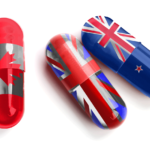For pharmacists, increasing scope of practice could backfire if the UK experience is anything to go by.
UK pharmacists who receive patients with complex medical needs from GPs under an NHS referral scheme are being stretched to breaking point, a pharmacy owner has told BBC News.
“We’ve had people coming in with eye infections, Strep A, I had a patient come in who had been sectioned, who came in and self-harmed and was bleeding in the pharmacy,” Max Punni, who owns 11 pharmacies, told the national broadcaster.
“We’ve seen a large increase in the number of people being referred – sometimes inappropriately – to the pharmacy.”
Under the program, pharmacists receive £14 ($24.60) per patient referred by a GP and while no such program currently exists in Australia, their experience raises the question of how Australian pharmacists might cope if their workload rises with the introduction of increased scope of practice programs.
One such program allows Queensland pharmacists to prescribe and treat non-complex UTIs, and similar schemes are under consideration in several other states.
The Pharmacy Guild has said repeatedly that increasing scope of practice will make access to healthcare easier as well as ease the pressure on hospitals. However, some pharmacists say they fear the effects of increasing the workload of an already stretched profession.
In February 2022, the pharmacists’ union, Professional Pharmacists Australia, said a recent survey had revealed that surging omicron cases, the increased demand for rapid antigen tests and the rollout of covid vaccinations – on top of already excessive workloads and demands – had left employee pharmacists stressed and exhausted, with morale at an all-time low.
“For over two years, day in, day out, pharmacists have been on the front line in the battle against covid, providing vaccinations, dispensing medications and providing information and other services to support the community’s health and wellbeing throughout the pandemic.
“The lack of adequate preparation for dealing with the omicron variant led to a massive increase in the demand for pharmacy services, and already stretched employee pharmacists have reached breaking point, said PPA’s CEO, Jill McCabe.
“Over 79 per cent of pharmacists said their pharmacy was not adequately staffed to deal with the increased demands placed on it.”
Ms McCabe added that the severe shortages of rapid antigen tests put enormous pressure on pharmacists, with 75 per cent of pharmacists reporting the lack of rapid antigen tests had a “significant” or “extreme” impact on their workload.
She said longstanding workplace issues in pharmacy such as low wages, excessive workloads and poor employment conditions had been amplified during the pandemic.
“Unsurprisingly, morale in the pharmacy sector is at an all-time low, with over two thirds of pharmacists feeling either ‘very negative’ or ‘negative’ about their working experience in pharmacy,” she said.
Mr Punni told BBC News the UK referral scheme put both patients and pharmacists at risk.
“We are effectively the front line [of the NHS] – especially after hours,” he told the broadcaster. “People are turning up to us wanting to remove stitches, people with complex mental health problems [have come in] breaking down.
“To say it’s stress and pressure – that’s just part of the job and it’s always been that way – this is beyond breaking point.”
One UK GP believes the scheme is taking the pressure of general practices, by allowing doctors to see patients who are most in need of their clinical expertise.
“All healthcare services are very stretched at the moment,” Dr Tim Norbury, a GP based in the west of England, told the BBC. “There is no doubt primary care has got huge demand and we fully appreciate that community pharmacies are under huge demand as well.”
“[But] colleagues working closely together through pharmacy schemes and primary care schemes means that we can get the best help for the patients most quickly.”
Pharmacy Guild national president Professor Trent Twomey, who was provided with the BBC piece, told TMR it was important to note this last comment. He also flagged Dr Norbury’s observation elsewhere that “the key thing is there is no competition between services here”.
“Pharmacists have the skills and knowledge to provide a wider range of services for patients, and in doing so will relieve pressure on general practice and emergency departments,” Professor Twomey said.
“The utility of Australian pharmacists working at their full scope of practice is to improve healthcare outcomes for patients.”






